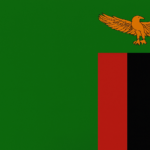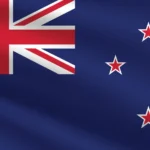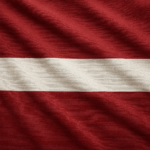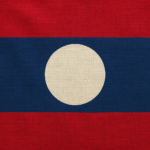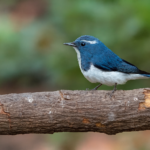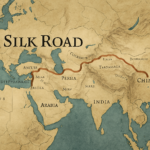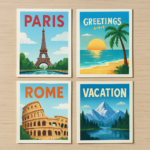
Palau has been inhabited for at least 3,000 years, with evidence of human settlement dating back to the 3rd millennium BC. Archaeological sites across the islands have yielded artifacts such as pottery, shell tools, and stone statues, providing insight into Palau’s pre-colonial history. Oral traditions passed down through generations also offer glimpses into the social and cultural practices of Palau’s earliest inhabitants.
The first European to visit Palau was the Spanish explorer Ruy López de Villalobos in 1543. Villalobos named the islands the “Palaos,” which means “island chain” in Spanish. Over the next several centuries, Palau was visited by numerous other European explorers and traders, including the British and the Germans.
In the late 1800s, Palau became a German protectorate, and was later administered by Japan following World War I. During this time, Palau underwent significant social and economic changes, with the introduction of Western-style education and modern infrastructure. However, these changes also led to the loss of traditional cultural practices and language, which have since been revived through efforts to preserve Palau’s cultural heritage.
During World War II, Palau was occupied by Japanese forces and was the site of several major battles, including the Battle of Peleliu. The battle, which took place in 1944, was one of the bloodiest of the Pacific campaign, with thousands of Japanese and American casualties. The scars of the war can still be seen on the islands today, with remnants of Japanese bunkers and other military installations still visible in many places.
Palau gained independence from the United States in 1994, following a long period of UN trusteeship. The transition to independence was marked by a new constitution and the establishment of a presidential republic with a multi-party system. Today, Palau is recognized as a sovereign nation by the international community, and continues to maintain close ties with the United States, its former administrator.
Palau is made up of over 300 islands, although only a few of them are inhabited. The islands are scattered across an area of approximately 700,000 square kilometers of ocean, making Palau one of the largest maritime nations in the world. The islands are primarily composed of limestone, and are characterized by rugged terrain, dense forests, and beautiful beaches.
The population of Palau is approximately 18,000 people, with the majority living on the main island of Koror. The population is ethnically diverse, with Palauans making up the largest group, followed by Filipinos and Chinese. The country’s small population has led to concerns about brain drain and emigration, with many Palauans seeking education and job opportunities abroad.
The official languages of Palau are Palauan and English, although many Palauans also speak Filipino and other Asian languages. Palauan is a member of the Austronesian language family, and is characterized by its complex grammar and extensive use of affixes. English is widely spoken and is the language of government, education, and business in Palau.
The currency of Palau is the US dollar, which has been in use since 1994. Palau has a small economy that is heavily dependent on tourism, as well as on foreign aid from countries like the United States and Japan. The government has made efforts to diversify the economy by promoting investment in sectors such as fisheries, agriculture, and renewable energy.
Palau is located in the western Pacific Ocean, east of the Philippines and north of Indonesia. The islands are situated along the western edge of the Pacific Plate, and are part of the “Ring of Fire,” an area of high seismic and volcanic activity. Palau experiences a tropical climate, with year-round high temperatures and a rainy season from June to November. The islands are home to a rich variety of flora and fauna, including many endemic species found nowhere else in the world.
Palau has a rich cultural heritage, with a long history of traditional arts and crafts. Palauan culture is characterized by a strong emphasis on respect for elders, communal living, and a close connection to the natural environment. Traditional Palauan practices include fishing, weaving, and tattooing, and many of these practices continue to be passed down through generations.
Palau is known for its stunning natural beauty, including its crystal-clear waters, diverse marine life, and lush forests. The country has established several protected areas, including the world-renowned Rock Islands Southern Lagoon, which was designated a UNESCO World Heritage Site in 2012. Palau’s waters are also home to numerous species of sharks, making it a popular destination for shark diving.
Palau has a unique system of governance, known as “chiefs’ democracy,” which is based on a combination of traditional Palauan leadership structures and Western-style democratic institutions. Palau’s political system is characterized by a strong emphasis on consensus-building and community involvement, with many decisions made through a process of consultation and discussion.
Palau has a high level of biodiversity, with a large number of endemic species found only in the country. The islands are home to over 1,300 species of fish, as well as a wide variety of birds, reptiles, and mammals. Many of these species are threatened by habitat loss, overfishing, and other human activities, highlighting the importance of conservation efforts in Palau.
Palau is a popular destination for scuba diving and other water sports, thanks to its clear waters and rich marine life. The country has developed a strong tourism industry, with visitors coming from around the world to experience Palau’s natural beauty and unique culture. However, tourism also presents challenges for Palau, including the need to balance economic growth with environmental protection.
Palau has a strong tradition of storytelling and oral history, with myths and legends passed down through generations. Many of these stories are centered around the sea, reflecting Palau’s close connection to the ocean. Palauan mythology includes tales of mermaids, sea monsters, and other creatures that inhabit the waters around the islands.
Palau has a small but vibrant arts scene, with a growing number of artists working in a variety of mediums. Traditional Palauan art forms include weaving, woodcarving, and tattooing, while contemporary artists are exploring new forms and techniques. The Belau National Museum in Koror houses a collection of Palauan art and artifacts, providing a window into the country’s cultural heritage.
Palau has a well-developed education system, with a literacy rate of over 98%. The country has a number of primary and secondary schools, as well as a community college and a university. Palauan students also have access to educational opportunities abroad, with many studying in the United States, Australia, and other countries.
Palau has a small but growing tech sector, with a number of startups and technology companies based in the country. The government has made efforts to promote the development of a digital economy, including through initiatives to expand broadband access and support entrepreneurship. Palau’s small size and location present both challenges and opportunities for its tech industry, with many companies focusing on niche markets and regional collaborations.
Palau has a unique legal system, with elements of both traditional Palauan law and Western-style legal institutions. The country’s constitution recognizes the importance of Palauan customs and traditions, and courts may take these into account when making decisions. Palau’s legal system includes a Supreme Court, a Court of Common Pleas, and a Land Court, as well as traditional community courts known as bai.
Palau is a member of the United Nations, the Pacific Islands Forum, and other international organizations. The country has developed close diplomatic and economic ties with the United States, which provided security and economic assistance to Palau for many years. Palau has also established relationships with other countries in the region, including Japan, Taiwan, and Australia.
Palau has a diverse economy, with tourism, fishing, and agriculture among the key sectors. The country also receives significant economic assistance from the United States, which has helped to support infrastructure development and other projects. Palau has made efforts to promote sustainable economic growth, including through initiatives to protect the environment and support small businesses.
Palau has a small but active sports scene, with a particular emphasis on water sports such as swimming, diving, and surfing. The country has sent athletes to the Olympic Games, and has also hosted a number of international sporting events. Palauan athletes have achieved success at the regional and international level, despite the country’s small size and limited resources.
Palau has a rich culinary tradition, with a mix of Palauan, Filipino, Chinese, and other influences. Local dishes include seafood, taro, and coconut-based dishes, as well as imported foods such as rice and noodles. Palauan cuisine reflects the country’s history and culture, and has also been influenced by its position as a crossroads of trade and migration.
Palau faces a number of challenges, including threats to its environment, economy, and security. Climate change, overfishing, and habitat loss are among the key environmental challenges facing Palau, while economic development and security concerns are also important issues. Palau has made efforts to address these challenges through a combination of conservation, economic diversification, and international cooperation, but continued action is needed to ensure the country’s long-term sustainability and prosperity.
